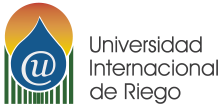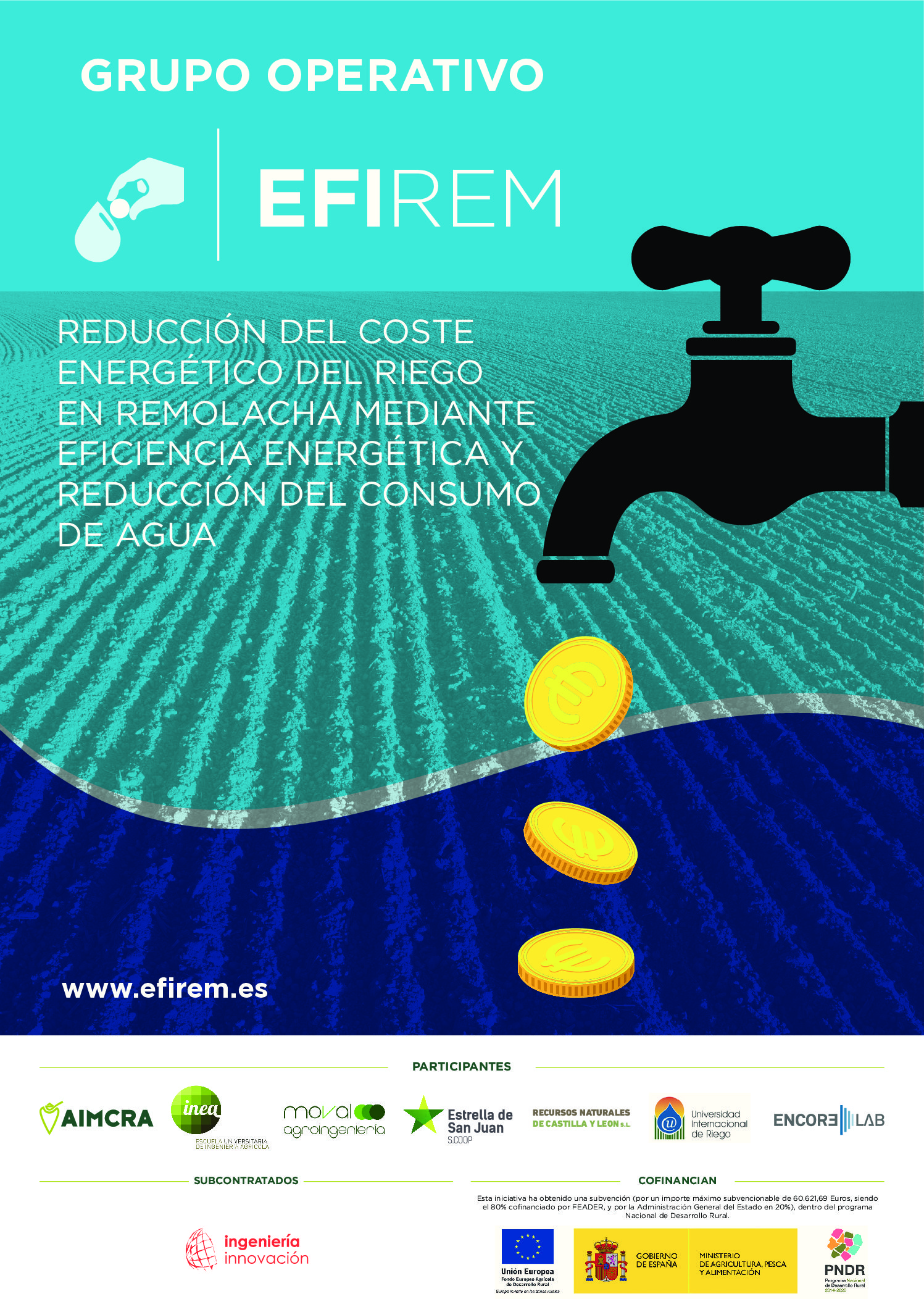La Universidad Internacional de Riego participa en el Grupo Operativo “Reducción del coste de riego mediante eficiencia energética y reducción del consumo de agua garantizando la competitividad de la remolacha azucarera en España”
El objetivo del Grupo Operativo es impulsar entre los agricultores la adopción de medidas innovadoras que hagan posible disminuir el coste de la factura energética del riego y optimizar el consumo de agua, con el fin de garantizar la competitividad y sostenibilidad del sector remolachero-azucarero tras la desaparición del sistema de cuotas en Europa en 2017 y el fin del actual periodo PAC en 2020.
Aunque se ha realizado un gran esfuerzo en la modernización de los antiguos sistemas de regadío, muchos agricultores siguen regando con aguas subterráneas mediante sondeos profundos y hacen frente a unos costes energéticos que suponen el 35% de los costes totales del cultivo. Estos costes lastran la competitividad del cultivo a pesar de sus rendimientos superan ampliamente a otros países europeos.
Los objetivos por lograr por el Grupo Operativo están enfocados principalmente a los agricultores de la remolacha azucarera con sondeos que podrán reducir su coste energético en el riego entre un 60 y un 75%, pero puede ser extrapolable a otros cultivos de regadío donde el coste del riego suponga un porcentaje elevado del coste de producción.
La principal asociación de productores de la remolacha azucarera AIMCRA consideran como estratégico el desarrollo de estos protocolos y por ello han constituido este grupo operativo junto con la INEA (Escuela Universitaria de Ingeniería Agrícola de la Compañía de Jesús en Valladolid), Moval Agroingenieria, Universidad Internacional del Riego, Sociedad Cooperativa Estrella de San Juan, Recursos naturales de Castilla y León y Encore Lab. Esta actuación ha sido cofinanciada por el Programa Nacional de Desarrollo Rural, Ministerio de Agricultura y Feader (Fondo Europeo Agrícola de Desarrollo Rural).
Durante la fase inicial de Creación del Grupo Operativo los socios definirán con detalle los objetivos parciales a obtener, el alcance del proyecto y el plan de trabajo a desarrollar en el futuro proyecto de Innovación.
Effirem
Reduction of the cost of irrigation through energy efficiency and reducing water consumption ensuring the competitiveness of sugar beet in Spain.
OBJECTIVES
The aim of the Operational Group is to encourage farmers to adopt innovative measures to reduce the cost of the energy bill for irrigation and optimise water consumption, to ensure the competitiveness and sustainability of the sugar beet sector, considering the disappearance of the quota system in Europe in 2017 and the end of the current PAC period in 2020.
Although a major effort has been made to modernise the old irrigation systems, many farmers continue to irrigate with underground water through deep drilling and they face energy costs up to 35% of total crop costs. These costs burden the competitiveness of the crop despite its yields outstrip other European countries.
The objectives to be achieved by the Operational Group are mainly focused on sugar beet farmers with underground water deep wells who may reduce their energy costs in irrigation by between 60 and 75%, but the results can be extrapolated to other irrigated crops where the cost of irrigation represents a high percentage of the production cost.
The main association of sugar beet producers, AIMCRA, considers the development of these protocols to be strategic and has therefore set up this Operational Group together with INEA (Escuela Universitaria de Ingeniería Agrícola de la Compañía de Jesús en Valladolid), Moval Agroingenieria, Universidad Internacional del Riego, Sociedad Cooperativa Estrella de San Juan, Recursos Naturales de Castilla y León and Encore Lab. The company Ingenieria e Innovación is the innovative agent.
During the initial phase of the creation of the Operational Group, the partners will define in detail the partial objectives to be achieved, the scope of the project and the work plan to be developed in the future Innovation project. This action has been co-financed by the National Rural Development Programme, Ministry of Agriculture and FEADER (European Agricultural Fund for Rural Development).

